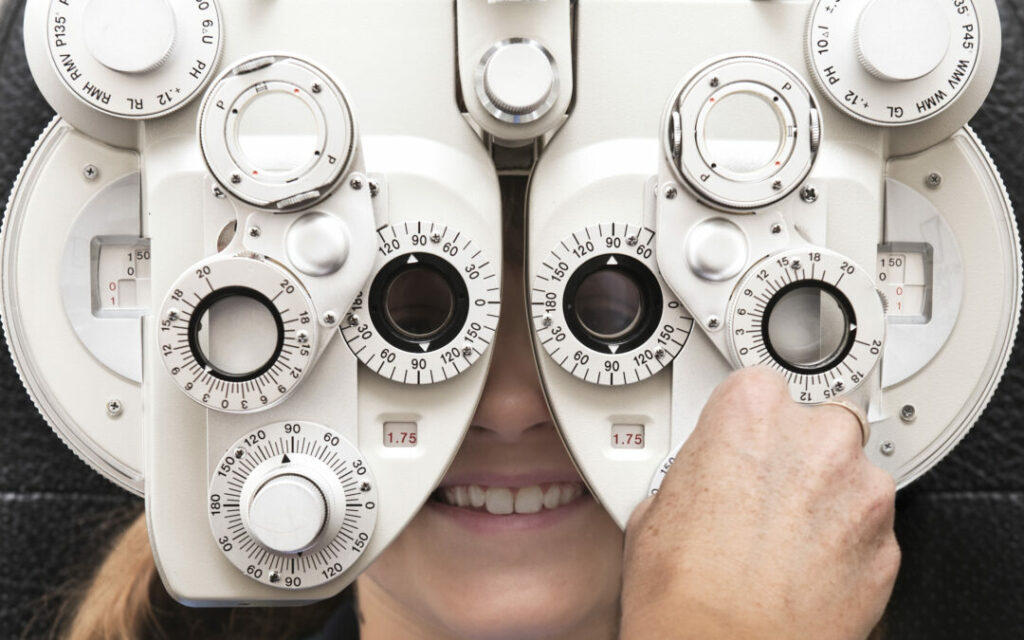When it comes to eye care, it can be confusing to know which type of professional to visit. Optometrists, ophthalmologists, and opticians each play important roles in maintaining eye health, but their training, scope of practice, and responsibilities differ significantly. Let’s delve into the differences to help you understand the differences between these eye care professionals, making it easier to decide whether you should be visiting Optometrists vs Ophthalmologists vs Opticians.
Optometrists
Education and Training
Optometrists are healthcare professionals who specialize in primary vision care. Their education includes:
- A bachelor’s degree, typically in a science-related field.
- Four years of optometry school, where they earn a Doctor of Optometry (OD) degree.
- Some optometrists choose to complete a one-year residency program for advanced clinical training in a specific area, such as pediatric optometry, vision therapy, or low vision.
- Some optometrists choose to pursue additional fellowship training in a subspecialty, typically with an ophthalmology specialist
Scope of Practice
Optometrists provide a wide range of eye care services, including:
- Conducting comprehensive eye exams to assess vision and detect eye disorders.
- Prescribing eyeglasses and contact lenses to correct refractive errors such as nearsightedness, farsightedness, and astigmatism.
- Diagnosing and managing common eye conditions such as dry eye syndrome, glaucoma, macular degeneration, and diabetic retinopathy.
- Providing pre- and post-operative care for patients undergoing eye surgery, such as LASIK or cataract surgery.
- Performing laser based surgical procedures to treat glaucoma and secondary cataracts.
- Offering vision therapy and rehabilitation for conditions like amblyopia (lazy eye) and binocular vision disorders.
When to See an Optometrist
You should visit an optometrist for routine eye exams, vision correction, and management of common eye conditions. They are your go-to professionals for maintaining overall eye health and addressing vision problems.
Ophthalmologists
Education and Training
Ophthalmologists are medical doctors who specialize in eye surgery. Their education and training include:
- A bachelor’s degree, usually in a pre-med or science-related field.
- Four years of medical school to earn a Doctor of Medicine (MD) or Doctor of Osteopathy (DO) degree.
- A one-year internship in general medicine or surgery.
- A three-year residency in ophthalmology, focusing on medical and surgical care of the eyes.
- Some ophthalmologists choose to pursue additional fellowship training in a subspecialty, such as retinal surgery, cornea and external disease, glaucoma, or pediatric ophthalmology.
Scope of Practice
Ophthalmologists provide comprehensive eye care, including medical and surgical services. Their scope of practice includes:
- Conducting detailed eye exams and diagnosing complex eye diseases.
- Performing eye surgeries, such as cataract removal, glaucoma treatment, and retinal detachment repair.
- Prescribing medications to treat eye diseases and infections.
- Managing late-stage chronic eye conditions that require ongoing care, such as macular degeneration, diabetic retinopathy, and advanced glaucoma.
- Performing reconstructive and cosmetic surgery, such as eyelid surgery (blepharoplasty) and procedures to correct drooping eyelids (ptosis), LASIK, and PRK.
When to See an Ophthalmologist
You should see an ophthalmologist for medical and surgical treatment of serious eye conditions and diseases. They are the right professionals to consult for comprehensive eye care, including complex diagnoses and specialized treatments.
Opticians
Education and Training
Opticians are trained to fit and dispense eyeglasses and contact lenses based on prescriptions from optometrists or ophthalmologists. Their education and training typically include:
- A high school diploma or equivalent.
- A formal education program in opticianry, which may be a one-year certificate or two-year associate degree program.
- On-the-job training or an apprenticeship, which is often required in addition to formal education.
- In some states, opticians must pass a licensing exam to practice, which may include written and practical components.
Scope of Practice
Opticians focus on the technical aspects of eyewear and visual aids. Their responsibilities include:
- Interpreting prescriptions written by optometrists or ophthalmologists.
- Helping patients select appropriate eyeglass frames and lenses based on their prescription, lifestyle, and preferences.
- Measuring patients’ eyes and facial features to ensure proper fit and alignment of eyeglasses.
- Adjusting and repairing eyeglasses to ensure comfort and optimal vision.
- Educating patients on the proper care and use of eyeglasses and contact lenses.
- Ordering and verifying the accuracy of finished eyewear from optical laboratories.
When to See an Optician
You should visit an optician when you need to fill a prescription for eyeglasses or contact lenses, require adjustments or repairs to your eyewear, or need guidance on selecting the best frames and lenses for your needs.

Comparing the Roles: Optometrists vs Ophthalmologists vs Opticians
Education and Training
- Optometrists: Require a Doctor of Optometry (OD) degree, which involves four years of optometry school after completing a bachelor’s degree. Some optometrists also complete a residency for specialized training.
- Ophthalmologists: Are medical doctors (MD or DO) who complete four years of medical school, a one-year internship, and a three-year residency in ophthalmology. They may also pursue additional fellowship training.
- Opticians: Typically complete a one-year certificate or two-year associate degree program in opticianry, along with on-the-job training. Licensing requirements vary by state.
Scope of Practice
- Optometrists: Provide primary vision care, including eye exams, vision correction, and management of common eye conditions. They can perform laser-based and minor surgery and can offer pre- and post-operative care co-managing with ophthalmologists.
- Ophthalmologists: Offer comprehensive eye care, including medical and surgical services. They can diagnose and treat complex eye diseases and perform eye surgeries.
- Opticians: Focus on fitting and dispensing eyeglasses and contact lenses based on prescriptions from optometrists or ophthalmologists. They do not diagnose or treat eye conditions.
When to See Each Professional
- Optometrists: For routine eye exams, vision correction, and management of common eye conditions.
- Ophthalmologists: For medical and surgical treatment of serious eye conditions and diseases.
- Opticians: For filling prescriptions for eyeglasses or contact lenses, adjustments or repairs to eyewear, and guidance on selecting frames and lenses.
Co-management between Optometrists vs Ophthalmologists vs Opticians
It may seem like there’s a lot of overlap between optometrists vs ophthalmologists, because there is many services that both can provide. As such, co-management between them occur fairly often in clinical settings, where both professionals work together to ensure optimal outcomes for eye health. Ophthalmologists perform complex surgical eye procedures and team up with Optometrists who will manage the pre- and post-operative care for patients. This partnership enhances patient outcomes and ensures a seamless continuum of care and is often the preferred methodology of care for both the eye doctors and patients.
Optometrists also commonly partner with or employ opticians in practices to provide a combined eyecare and eyewear experience. These can be seen in hospital, private practice, or sublease practice modalities.
Ophthalmologists and optician rarely partner together, when they do, the relationship is very similar to that of optometrists and opticians.
Optometrists vs Ophthalmologists vs Opticians: So that’s the Difference
Understanding the differences between optometrists, ophthalmologists, and opticians is crucial for making informed decisions about your eye care. Each type of eye care professional plays a unique role in maintaining and improving your vision health.
Optometrists are your primary eye care providers, offering comprehensive eye exams, vision correction, and management of common eye conditions. Ophthalmologists are medical doctors who can diagnose and treat complex eye diseases, perform surgeries, and provide specialized care. Opticians are experts in fitting and dispensing eyeglasses and contact lenses, ensuring you have the correct and comfortable eyewear. By knowing when to visit each type of eye care professional, you can ensure you receive the appropriate care for your vision needs.
At Optical Illusions: An Optometric Practice, we are committed to providing exceptional eye care. Our experienced optometrists use state-of-the-art technology to diagnose and treat through our medical eye exams and partner with the best ophthalmologist in the area. Don’t wait until symptoms get worse—schedule your eye exam today and take proactive steps towards safeguarding your vision and health. Contact our team to schedule your appointment at 1 of our 4 conveniently located offices.



